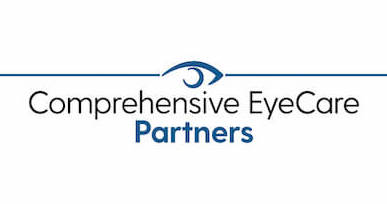
If your eyes seem drier during ragweed season, your allergy medication might be to blame. Many common medications can cause or worsen dry eye by reducing tear production, altering the composition of tears, or causing other side effects that can contribute to dry eye.
Dry eye occurs when the eyes do not produce enough tears or produce low-quality tears. High-quality tears contain three layers: the aqueous (water) layer, the mucin (mucus) layer, and the lipid (oily) layer.
The most common symptoms of dry eye include dryness, itchiness, burning, redness, a gritty or sandy feeling, excessive tearing, blurry vision, sensitivity to light, and eye fatigue. To help you identify the cause of your dry eye, keep reading to discover some of the medications that are known to cause dry eye!
Antihistamines
Antihistamines, commonly used to treat allergies, reduce the body’s ability to produce fluids and mucus. This can lead to diminished tear production and a lack of moisture on the eye’s surface.
Some examples: diphenhydramine, loratadine
Beta-blockers
Beta-blockers are used to manage high blood pressure and other cardiovascular conditions. They can affect the eye’s lacrimal glands, reducing the production of the aqueous component of tears and resulting in poor-quality tears.
Some examples: propranolol, metoprolol
Diuretics
Diuretics prescribed for hypertension and heart failure can increase urine production and lead to dehydration. Systemic dehydration can greatly reduce tear production and worsen existing dry eye.
Some examples: furosemide, hydrochlorothiazide
Antidepressants
Many antidepressants, especially tricyclic antidepressants and SSRIs, work by blocking signals between nerve cells, which can result in insufficient tear production. Dry eye caused by antidepressants may lead to excessive tearing.
Some examples: amitriptyline, fluoxetine
Isotretinoin
Isotretinoin, a medication used to treat severe acne, affects the function of the meibomian glands, which produce the oily layer of the tear film. Meibomian gland dysfunction is one of the leading causes of dry eye.
Some examples: Accutane
Anticholinergics
Anticholinergic drugs are used to treat a wide array of health conditions, including Parkinson’s and irritable bowel syndrome (IBS). They block neurotransmitter signals between cells, which can affect adequate tear production.
Some examples: atropine, scopolamine
Oral Contraceptives
Hormonal changes caused by oral contraceptives can affect tear production. These changes can impact the quality of the tear film by reducing the secretions of the oil layer, resulting in increased tear evaporation and more severe dry eye symptoms.
Decongestants
Decongestants, used to relieve nasal congestion, can decrease mucus production and dry out the eye’s mucous membranes. This prevents proper mucin production, a vital component of healthy tears.
Some examples: pseudoephedrine, phenylephrine
Chemotherapy Agents
Of all chemotherapy agents, cyclophosphamide is a known cause of dry eye. It causes dry eye symptoms in as many as 60% of patients given the drug.
Some examples: cyclophosphamide
Antipsychotics
Antipsychotic medications, particularly those used to treat schizophrenia, can decrease the production of the tear’s aqueous layer. The impact these drugs have on tear production can depend on dosage.
Some examples: haloperidol, clozapine
If you think your medication is the cause of your dry eye, you should consult your doctor or eye care provider. They can help you manage your medications and find effective relief from the symptoms of dry eye.
Are you experiencing symptoms of dry eye? Schedule an appointment at Shepherd Eye Center at one of our 5 locations in Las Vegas or Henderson, NV, today!


